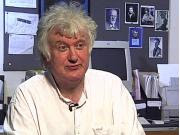http://hubpages.com/hub/Criminology-Diploma-11-Forensic-Psychology
Forensic Psychology - Criminology Diploma 11.

Forensic Psychology
Psychology. The scientific study of mental process and behaviour, the mental make up of a person.
Therefore forensic psychology is the interface between psychology and the law, which would mean that all psychological services provided within a legal matter become forensic psychological services. However, most forensic psychologists provide services that are both clinical and forensic in nature. When a psychologist treats an individual who has been emotionally traumatised by an accident, the treatment is clinical in nature, designed to assist that individual to recover from such trauma. But, when the psychologist is asked to provide a report for the court, regarding the extent of the trauma, and to assess the psychological damage incurred, then the psychologist is providing forensic services.
What is Psychology? It could be called the science of the mind: The human mind being the most complex machine known to man, the source of all our thought and behaviour.
So how can mind be studied? Physically, the mind, something so mysterious and complex, cannot be studied. Should the skull of a willing volunteer be opened up, one would only find the “grey matter” that is a brain. One would not be able to see thought, emotion, behaviour, memory or dreams through physical examination.
So to study the mind, a psychologist needs to adopt similar approaches to scientists in other fields. For example, a nuclear physicist interested in the structure of atoms cannot observe protons, electrons and neutrons directly. Instead, one needs to predict how these elements should behave and devise experiments to confirm or refute these expectations.
In a similar way, psychologists use human behaviour as a clue to the workings of the mind. Although we cannot observe the mind directly, everything we do, think, feel and say is determined by the functioning of the mind. So psychologists take human behaviour as the raw data for testing their theories about how the mind works.
The study of psychology has five basic goals: -
1. Describe – The first goal is to observe behaviour and describe what was observed as objectively as possible, often to the finest detail.
2. Explain – While descriptions come from observable data, psychologists delve beyond the obvious in attempt to explain their observations. In other words, rather than simply explain a person’s action one would attempt to explain why that person acted in that way.
3. Predict – Knowing what happens and why it happens, one can then begin to speculate what may happen in the future.
4. Control – Once one knows what happens, why it happens and what is likely to happen in the future, one can then exert control over it.
5. Improve – Any psychologists attempts to control behaviour must be done in a positive manner; attempting to improve a persons live, not make it worse. Not always the case but always the intention.
Research plays an important role in the field of psychology. Forensic psychologists conduct interviews with criminals to understand why they committed the crimes they did, this research can then be analysed, and conclusions drawn.
Research helps us understand what makes people think, feel and act in certain ways; it allows us to categorise psychological disorders in order to understand the symptoms and impact on the individual and on society; it helps us to understand how intimate relationships, development, schools, family, peers and religion affect us as individuals and as a society; and it helps us to develop effective treatments to improve the quality of live of individuals and groups.
In this sense, psychological research is generally used to: -
· Study development and external factors and the role they play on individuals’ mental health.
· Study people with specific psychological disorders, symptoms or characteristics.
· Develop tests to measure specific psychological phenomenon.
· Develop treatment approaches to improve an individuals’ mental health.
TRADUÇÃO EM PORTUGUES
Psicologia. O estudo científico do processo mental e de comportamento, a mental constituem de uma pessoa.
Portanto, a psicologia forense é a interface entre a psicologia ea lei, o que significaria que todos os serviços psicológicos prestados dentro de uma questão legal se tornar forense serviços psicológicos. No entanto, a maioria dos psicólogos forenses prestação de serviços que são clínica e forense na natureza. Quando um psicólogo trata de um indivíduo que foi emocionalmente traumatizado por um acidente, o tratamento é clínico na natureza, projetado para auxiliar o indivíduo para se recuperar de trauma tal. Mas, quando o psicólogo é solicitado a fornecer um relatório para o tribunal, quanto à extensão do trauma, e para avaliar os danos psicológicos sofridos, em seguida, o psicólogo está fornecendo serviços forenses.
O que é Psicologia? Poderia ser chamado de ciência da mente: A mente humana é a máquina mais complexa que o homem conhece, a fonte de todo o nosso pensamento e comportamento.
Então, como pode a mente ser estudadas? Fisicamente, a mente algo, tão misterioso e complexo, não pode ser estudada. Caso o crânio de um voluntário disposto a abertura, uma só encontrar a "massa cinzenta", que é um cérebro. Um não seria capaz de ver o pensamento, a emoção, o comportamento de memória, ou sonhos através de exame físico.
Então, para estudar a mente, um psicólogo precisa adotar abordagens semelhantes para os cientistas em outros campos. Por exemplo, um físico nuclear interessado na estrutura dos átomos não pode observar prótons, elétrons e nêutrons diretamente. Em vez disso, é preciso prever como esses elementos devem se comportar e elaborar experimentos para confirmar ou refutar essas expectativas.
De uma forma similar, os psicólogos usam o comportamento humano como uma pista para o funcionamento da mente. Apesar de que não podemos observar a mente diretamente, tudo o que fazemos, pensamos, sentimos e dizer é determinada pelo funcionamento da mente. Assim, os psicólogos levar o comportamento humano como os dados brutos para testar suas teorias sobre como a mente funciona.
O estudo da psicologia tem cinco objetivos básicos: -
1. Descrever - O primeiro objetivo é observar o comportamento e descrever o que foi observado tão objetivamente quanto possível, muitas vezes, ao mais ínfimo pormenor.
2. Explicar - Enquanto descrições vêm de dados observáveis, psicólogos mergulhar além do óbvio na tentativa de explicar as suas observações. Em outras palavras, ao invés de simplesmente explicar uma ação de uma pessoa iria tentar explicar por que essa pessoa agiu dessa forma.
3. Prever - Saber o que acontece e por que isso acontece, pode-se começar a especular o que pode acontecer no futuro.
4. Controle - Uma vez que ninguém sabe o que acontece, por que isso acontece eo que é provável que aconteça no futuro, pode-se exercer controle sobre ele.
5. Melhorar - Qualquer tentativa psicólogos para controlar o comportamento deve ser feito de uma maneira positiva; tentar melhorar uma pessoas vivem, e não piorá-lo. Não sempre o caso, mas sempre a intenção.
A investigação desempenha um papel importante no campo da psicologia. Psicólogos forenses realizar entrevistas com criminosos para entender por que eles cometeram os crimes que eles fizeram, esta pesquisa pode então ser analisados, e as conclusões.
Pesquisa nos ajuda a entender o que faz as pessoas pensar, sentir e agir de determinadas maneiras, que nos permite categorizar distúrbios psicológicos, a fim de compreender os sintomas eo impacto no indivíduo e na sociedade, que nos ajuda a entender como as relações íntimas, o desenvolvimento, as escolas , família, colegas e religião nos afetam como indivíduos e como sociedade, e isso nos ajuda a desenvolver tratamentos eficazes para melhorar a qualidade de vida dos indivíduos e grupos.
Neste sentido, a pesquisa psicológica é geralmente usado para: -
· Desenvolvimento de Estudos e fatores externos e do papel que desempenham na saúde dos indivíduos mental.
· As pessoas específicas Estudo com distúrbios psicológicos, os sintomas ou características.
· Desenvolver testes para medir fenômeno psicológico específico.
· Desenvolver abordagens de tratamento para melhorar a saúde de um indivíduo mental.
















































































